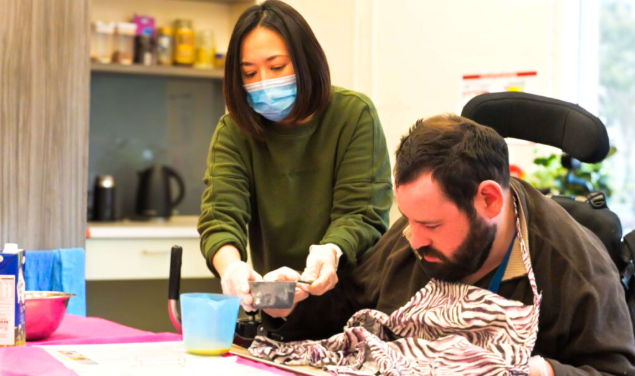Daily Life with Dysphagia: Strategies for Safe Eating and Drinking

When a person struggles to swallow food or liquids, they may be diagnosed with dysphagia. They may even find it challenging to swallow their saliva. This condition primarily affects older adults and individuals with underlying medical conditions that impact the muscles and nerves used for swallowing. If a person doesn’t seek treatment for this condition, they may become malnourished or dehydrated. In addition, they may develop other health issues.
Why is Managing Dysphagia So Important?
People must manage their dysphagia to remain healthy and feel good. They reduce the risk of complications. Individuals with this condition often feel embarrassed by the challenges they experience with eating and may avoid dining with others. The following information from Simply Thick will help them enjoy meals once again.
What Causes Dysphagia?
Many things can lead to a dysphagia diagnosis. A person might have a medical problem that affects the mouth, throat, or esophagus. Individuals who have had a stroke or have been diagnosed with Parkinson’s disease or multiple sclerosis may have trouble swallowing because these conditions often affect the muscles and nerves used when swallowing. A narrowed esophagus or tumor can interfere with the swallowing mechanisms, and any disease that weakens muscles in the body can bring about dysphagia. Older individuals are more prone to this condition, but it can affect people of all ages.
Dysphagia Symptoms
A person may not know they have dysphagia. However, they begin experiencing symptoms and wonder what is causing them. If they cough or choke when eating or drinking, they may have a problem swallowing. Many people report feeling as though their food is stuck in their throat or chest, or they may find it difficult to chew or move food around in their mouth. A person might regularly clear their throat or drool. Some people notice their food or drinks are leaking from their mouths. They may eat less when they see these symptoms and begin losing weight or become dehydrated.
Read also:
Managing Dysphagia
To bring these symptoms under control, people need to plan and prepare their meals in advance. Foods and liquids may need to be thickened so the person won’t choke on them. People need to ensure they eat a variety of foods to prevent other health issues. When doing so, they need to use safe swallowing techniques.
People with dysphagia need to sit upright while eating. Their back should be supported, and it is easier to swallow if they tilt their head slightly forward. They should take small bites and sips and carefully chew their food before swallowing. All distractions must be removed when they eat, and they should not be encouraged to talk or laugh during this time. Doing so increases the odds of them choking.
Staying hydrated is essential for men and women with dysphagia, but the liquids must be thickened so they can swallow them safely. Thickening agents are used to ensure the liquids have the right consistency. Talk with the individual’s medical team to learn the correct thickness based on their symptoms and the severity of the dysphagia.
People who use these tips find that meals are easier. They enjoy eating once again and won’t hesitate to dine with family and friends. They may benefit from assistive devices and tools to make eating and drinking easier. Individuals should work with their medical team to find the techniques that will benefit them so that meals become pleasurable once again.




